Filter by
The language used throughout the course, in both instruction and assessments.
229 results for "algorithmic trading"
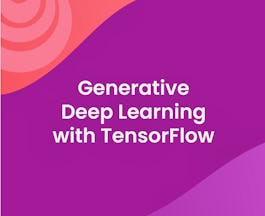
DeepLearning.AI
Skills you'll gain: Artificial Neural Networks, Computer Vision, Deep Learning, Machine Learning, Tensorflow, Human Learning, Machine Learning Algorithms, Applied Machine Learning, Python Programming, Dimensionality Reduction
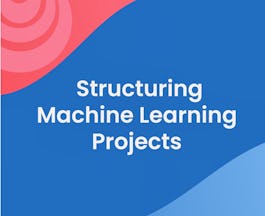
DeepLearning.AI
Skills you'll gain: Applied Machine Learning, Data Analysis, Data Model, Deep Learning, Exploratory Data Analysis, Machine Learning, Machine Learning Algorithms, Process Analysis, Artificial Neural Networks, Computer Vision, Human Learning

Duke University
Skills you'll gain: Algorithms, BlockChain, FinTech, Finance, Banking, Contract Management, Innovation, Investment Management, Securities Trading, Strategy and Operations
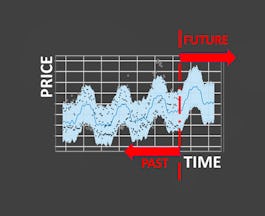
Coursera Project Network
Skills you'll gain: Forecasting, Machine Learning, Python Programming, Data Science

Coursera Project Network
Skills you'll gain: Machine Learning, Deep Learning, Tensorflow
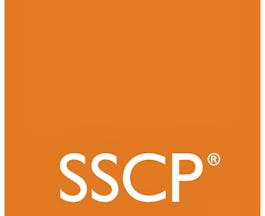
Skills you'll gain: Security Engineering, System Security, Network Security, Software Security, Computer Security Incident Management, Leadership and Management, Security Software, Risk Management, Strategy and Operations, Algorithms, Cloud Computing, Cryptography, Cyberattacks, Operations Management, Security Strategy, Human Factors (Security), Software-Defined Networking, Cloud Applications, Communication, Financial Accounting
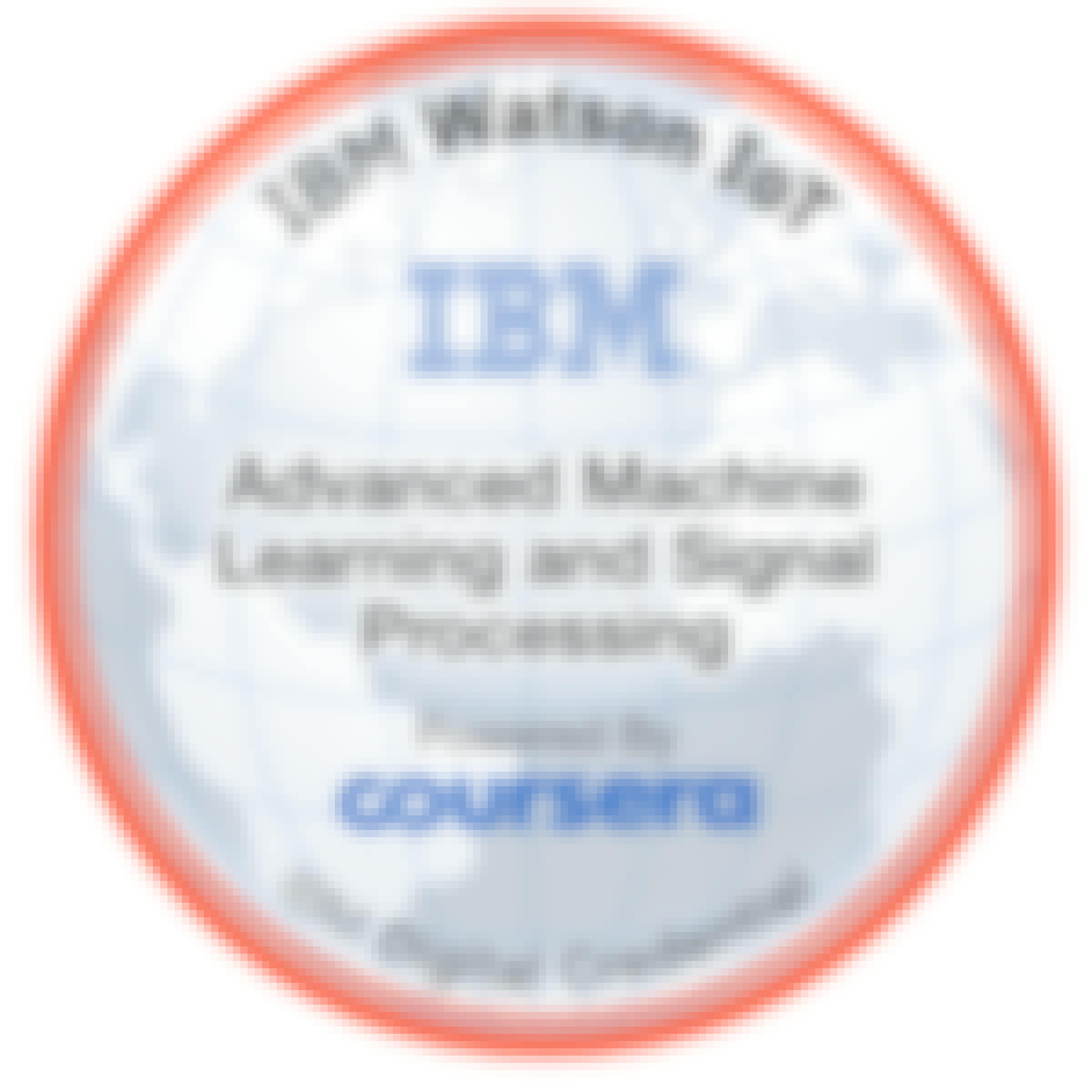
Skills you'll gain: Machine Learning, Machine Learning Algorithms, Machine Learning Software, Python Programming, Statistical Programming, Apache, Data Management, Extract, Transform, Load, Feature Engineering, Probability & Statistics, Human Learning

Skills you'll gain: Python Programming, Microsoft Excel, Data Visualization, Spreadsheet Software, Data Analysis, Data Management, Databases, Exploratory Data Analysis, SQL, Plot (Graphics), Business Analysis, Data Analysis Software, Computational Thinking, Computer Programming, Database Application, Professional Development, Statistical Visualization, Big Data, Data Mining, Data Science, General Statistics, NoSQL, R Programming, Cloud Computing, Data Visualization Software, IBM Cloud, Interactive Data Visualization, Machine Learning, Machine Learning Algorithms, Probability & Statistics, Regression

Microsoft
Skills you'll gain: Algorithms, Applied Machine Learning, Human Learning, Machine Learning, Machine Learning Algorithms, Machine Learning Software, Microsoft Azure, Cloud Computing, Regression, Training
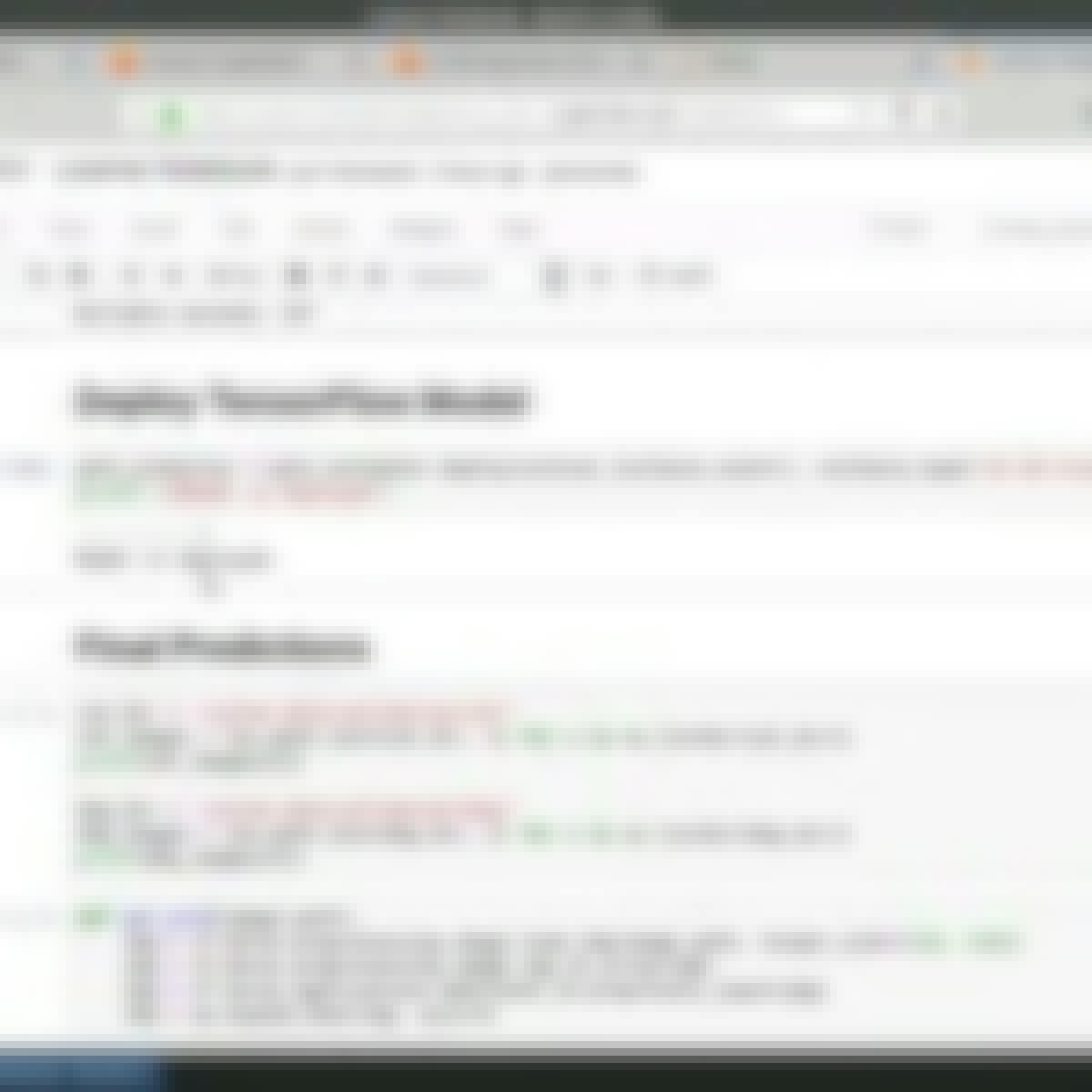
Coursera Project Network
Skills you'll gain: Deep Learning, Machine Learning, Tensorflow
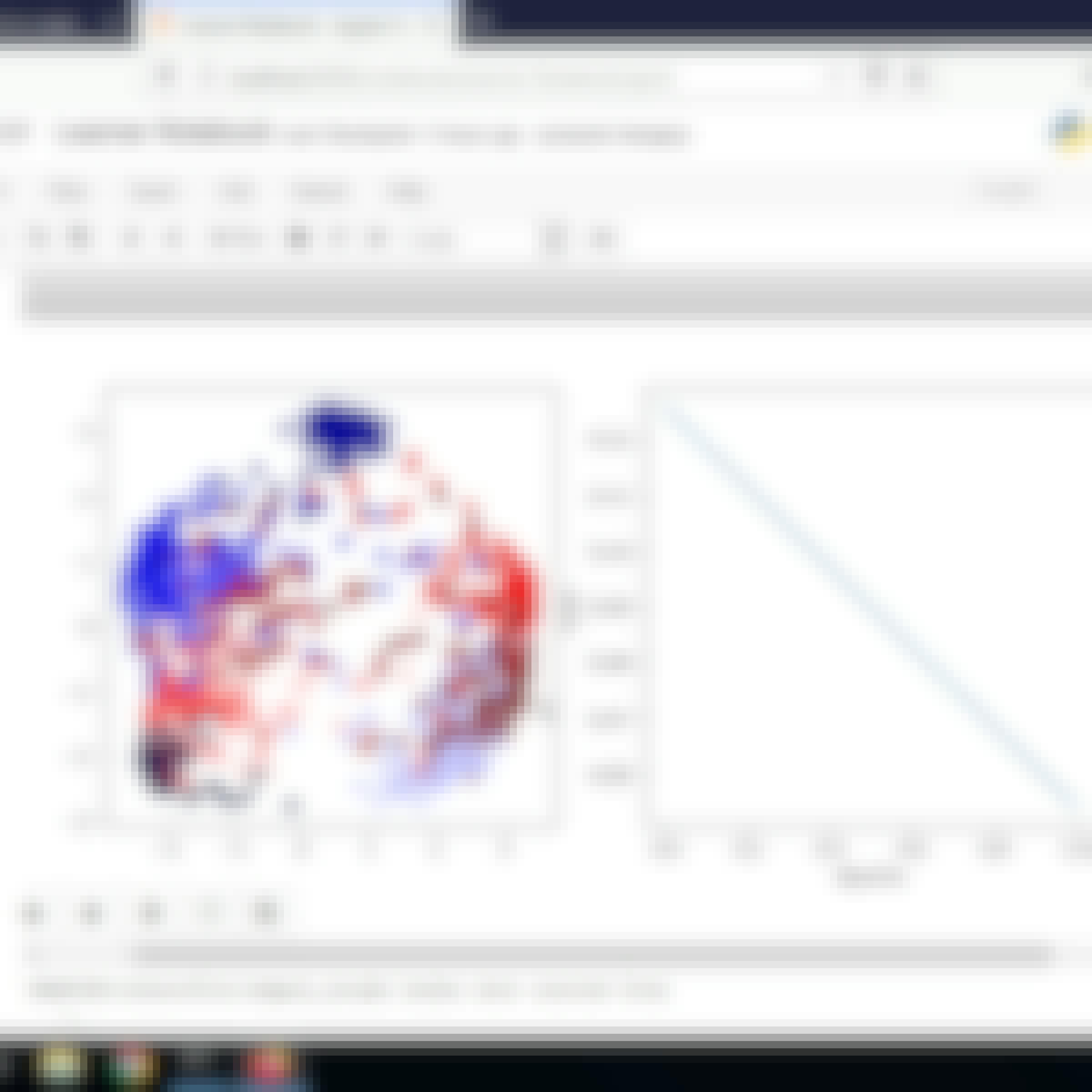
Coursera Project Network
Skills you'll gain: Deep Learning, Machine Learning

Skills you'll gain: Apache, Big Data, Machine Learning, Human Learning, Machine Learning Algorithms, Data Science
Searches related to algorithmic trading
In summary, here are 10 of our most popular algorithmic trading courses
- Generative Deep Learning with TensorFlow: DeepLearning.AI
- Structuring Machine Learning Projects: DeepLearning.AI
- Decentralized Finance (DeFi) Deep Dive: Duke University
- Predict Future Product Prices Using Facebook Prophet: Coursera Project Network
- Basic Sentiment Analysis with TensorFlow: Coursera Project Network
- (ISC)² Systems Security Certified Practitioner (SSCP): ISC2
- Advanced Machine Learning and Signal Processing: IBM
- IBM Data Analyst: IBM
- Microsoft Azure Machine Learning: Microsoft
- Using TensorFlow with Amazon Sagemaker: Coursera Project Network










